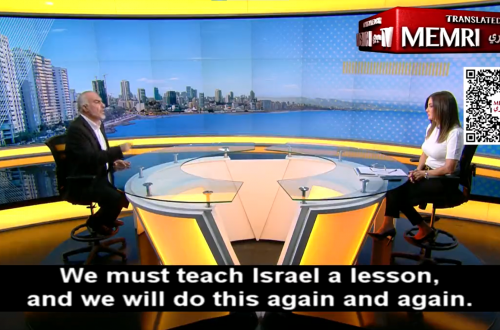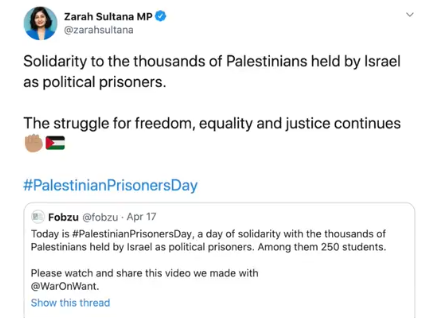This is a cross-post from falsedichotomies.com
There’s not much new in the Omar Barghouti vs. Bernard Avishai debate, and I’ve dealt with a lot of the issues raised elsewhere, but Barghouti does make one point that urgently needs to be challenged: the idea that BDS is simply a movement concerned with dispassionately implementing the demands of “justice” and “equality” in such a way that would be standard for resolving similar conflicts elsewhere. This, as I hope to demonstrate, is false.
What Barghouti actually means is that he wants to implement his understanding of justice and equality. This goes as follows: In 1947, the UN unjustly voted to partition historic Palestine into two states, one Jewish and one Arab. This was unjust because the population of historic Palestine was one-third Jewish and two-thirds Palestinian-Arab, and, besides, most of the Jewish population of Palestine were recent immigrants who had arrived against the wishes of the local population (one should never tire of pointing out that anti-Zionism began as an anti-immigrant movement). Thus, the Arab world was entirely justified in rejecting the partition plan, even before the nascent State of Israel unjustly refused to allow the 750,000 or so Palestinian refugees to return to their homes. In short, the establishment of the State of Israel was unjust, and the only just way to deal with the problems caused by its creation would be to dismantle it, which can be simply done by implementing one of the key BDS demands: implementation of the right of return.
This reading of the conflict is perfectly consistent and reasonable. For Barghouti, justice means that only the concerns of the original, native-born population should be taken into account, even 64 years after the Nakba. He does not even bother going through the motions of arguing for a genuine bi-national solution, for example by speaking out in favour of both people’s national rights being guaranteed irrespective of demographic differences. This is because he wants to replace Israel with a Palestinian-Arab state.
I don’t morally object to him having this desire, even if in the long run I think it will lead the Palestinians to further ruin. It is Barghouti’s prerogative, and, as I already said, I can’t fault his internal logic. What I do object to, though, is his insistence that all this is mere “justice” and “equality”, as if there was no dispute whatsoever regarding what those terms mean, and what their implementation would mean in the context of the Palestinian-Israeli conflict.
With all that in mind, then, here is my reading of the conflict. In 1947 the UN justly voted to partition historic Palestine into two states, one Jewish and one Arab. This was just because there were two irreconcilable national communities present in the land (bi-nationalism may have been preferable, but – primarily because of opposition from Barghouti-types – it was always a non-starter). The Arab world should have accepted the partition resolution as the lesser of two evils, and bears significant responsibility for launching a war aimed at completely destroying the embryonic Jewish state (losing heavily does not confer moral legitimacy, even if we do live in a world that fetishizes victimhood). In short, the establishment of the State of Israel was just, and – given that the cause of conflict remains the conflicting national ambitions of Israelis and Palestinians – some form of partition remains the most just solution to the conflict (even if, as I hope to outline in the near future, it may not be the best solution), as it would be more equal than having one Palestinian-Arab state and no Jewish state.
Now, I cannot prove to Barghouti that my definition of justice is correct. It is based upon axioms that he probably wouldn’t agree with. But here’s the rub – neither can he. His understanding of justice is based on axioms that are just as unverifiable as mine. He declares that only [a selectively implemented version of] individual rights matter; I say that collective rights are equally if not more important. Some people agree with Omar. Others agree with me. But justice and equality are not hard sciences. They have and always will be deeply contested, at least until the messiah comes. For Barghouti to pretend otherwise is false. So, to answer the commissar’s question, “If equality and justice would destroy Israel, what does that say about Israel?”, my reply is that it means Zionism does not meet Omar Barghouti’s standards of justice. This is because we are not willing to commit national suicide. He is welcome to his justice and equality, and he is welcome to keep telling us that we are unjust, unequal, and racist. It is dirt off our shoulders. We would rather continue having the State of Israel.


